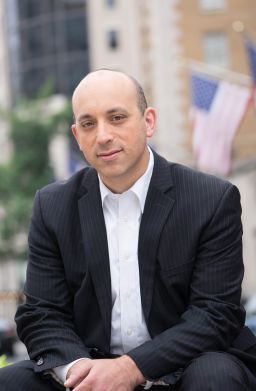Editor’s Note: Jonathan A. Greenblatt is CEO and National Director of the Anti-Defamation League. The opinions expressed here are his own. View more opinion on CNN.
Actor Jussie Smollett has been arrested and charged with a felony for allegedly filing a false police report claiming he was the victim of a hate crime. Smollett, who is black and gay, had told police he was attacked by two men who used racist and homophobic slurs and tied a rope around his neck. On Thursday, Chicago police said Smollett paid two men to stage the attack. Smollett has made no statements since turning himself in.

No person should falsely report a hate crime, or any other kind of crime, ever. Smollett’s story risks obscuring a crucial and disturbing fact many Americans face every day: hate crimes are on the rise. The revelation that this high-profile incident involving Smollett may have been staged is one we should all find the more disturbing because of the impact it may have on those who seek justice in the future.
Unfortunately, most hate crimes in this country rarely get the kind of attention that the reported – and possibly bogus – attack against Smollett has received. The vast majority of hate crimes in the US do not make headlines. Sometimes this is because the victims are fearful of reporting such crimes to the authorities, or don’t trust the police to respond effectively and with sensitivity. Research shows the tremendous harm bias-motivated criminal violence does to marginalized groups: African-Americans, LGBTQ people, Muslims, Jews and others.
The rare instances of false claims must not overshadow the alarming increase in hate crimes. In its latest annual Hate Crime Statistics Act report, the FBI reported 7,175 hate crimes in 2017 – a 17% jump from 2016. There was a 37% spike in crimes targeting Jews and Jewish institutions. Overall, 28% of reported hate crimes were committed against African-Americans, who remain among the most vulnerable and targeted groups.
And these staggering numbers don’t even begin to scratch the surface of a larger problem. According to the Anti-Defamation League (ADL)’s analysis of the FBI data, over 90 cities with populations exceeding 100,000 people either did not report any data to the FBI or reported zero hate crimes. Whatever the reasons that police departments did not report credible data to the FBI, the lack of complete information risks sending the message that this is not a priority issue and makes it even harder to address hate violence.
Moreover, there are still five states with no hate crime laws on the books – Arkansas, Georgia, Indiana, South Carolina and Wyoming. There are also some states with ineffective or incomplete hate crime laws, like Utah, whose law does not currently include any specific enumerated categories, and does not apply to felony crimes. This makes it incredibly hard – some say impossible – to enforce the law.
Hate crimes demand attention because of their special impact. Bias crimes are intended to intimidate not just the victim but also the victim’s entire community, leaving them feeling fearful, isolated and vulnerable.
Hate crime laws are essential because they underscore how seriously we as a society take these crimes, imposing tougher penalties on criminals who target their victims because of the victim’s race, religion, ethnicity, sexual orientation or other characteristics or behavior. That goes for hate crimes conducted in whole or part online, as well.
Hate crime statutes typically increase the penalty for an offense if the victim or target is intentionally selected for violence because of his or her personal characteristics. This sends a message to the entire community that hate crimes are unacceptable.
For more than three decades, ADL – working in partnership with other civil rights and religious organizations, law enforcement, civic agencies and business leaders – has spearheaded efforts to draft, pass and implement effective hate crime laws. Forty-five states and the District of Columbia now have hate crime laws on their books based on or similar to ADL’s model hate crimes statute, whose approach was upheld unanimously by the US Supreme Court in 1993.
We will not stop our efforts until all 50 states have comprehensive and effective hate crimes statutes.
While the Smollett case continues to take twists and turns, it’s paramount that we acknowledge that for every case such as this, there are thousands of others that are indisputable and leave a lasting impact on the targeted victims and their communities. We must make it clear, over and over again, that the bias-motivated crimes happening every day are unacceptable.



















